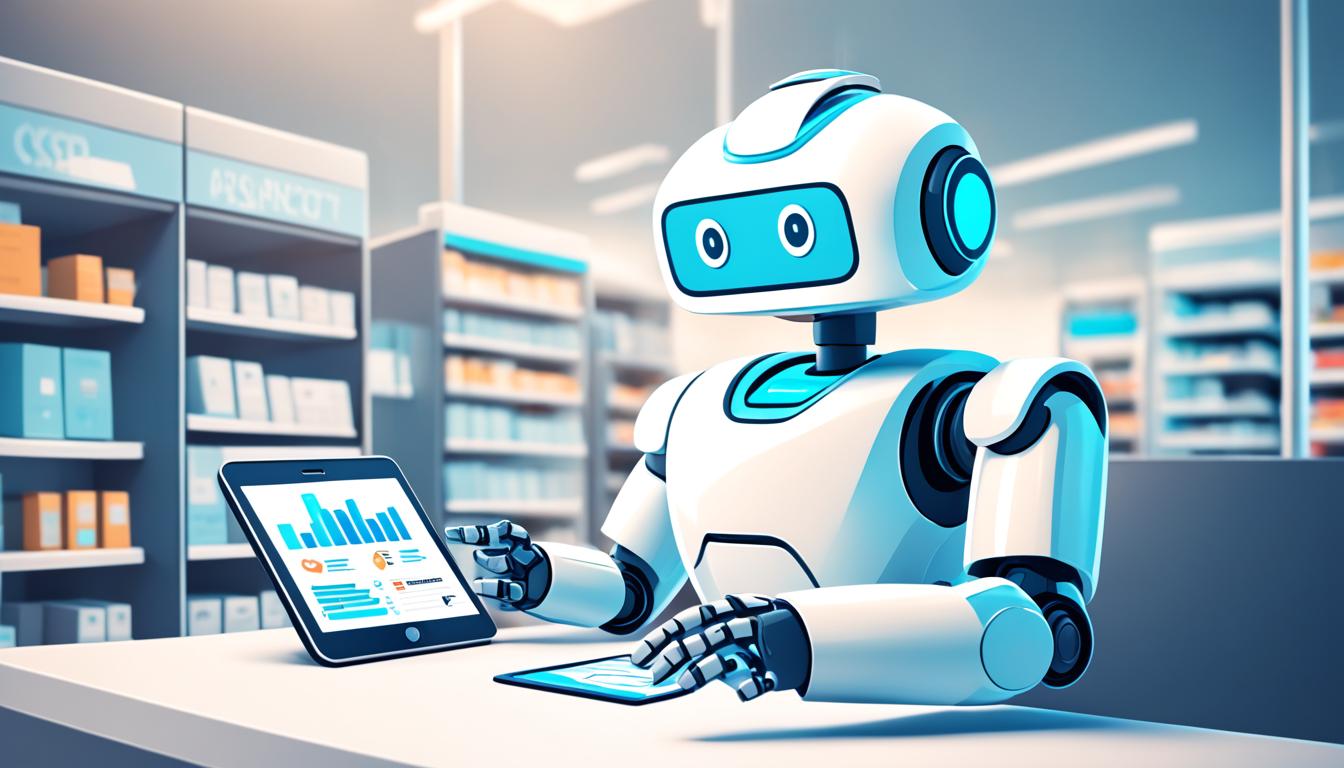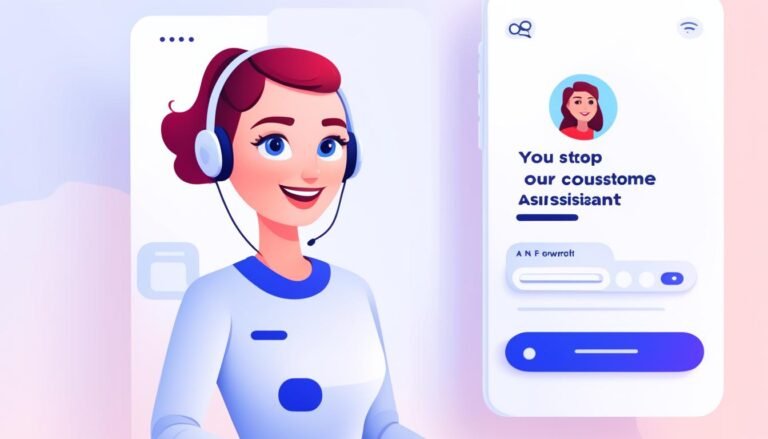How to use AI in Sales and Marketing?
Artificial Intelligence (AI) has brought big changes to many fields, including sales and marketing. By using AI, businesses can work better, grow faster, and lead in their markets. We’ll look at how AI is changing sales and marketing, its benefits, and how to use it well.
AI tools help in many ways in sales and marketing. They make it easy to do simple tasks, understand data better, and offer customers what they really want. This means sales teams can find the best leads, and marketers can create content for specific groups. With AI, you can also learn a lot about how customers act and what they like. This helps make smart choices and improve marketing.
Yet, using AI in these areas also brings some challenges. Picking the right AI tools and making sure they work with what you already have is critical. It’s also important to think about user privacy and ethics when using AI. Tackling these problems needs a smart plan and teamwork across your whole company.
Next, we’ll show you more about how AI is changing sales and marketing. We’ll give tips on how to use AI in your business strategy. And, we’ll talk about real cases where AI has made a big difference. We’ll look at what’s next in AI for sales and marketing. This will help you get ready for more changes and new opportunities.
Find out how AI can change your sales and marketing for the better. It can open the doors to more growth and success.
Key Takeaways:
- AI tools help by doing tasks automatically, understanding data, and giving customers what they want.
- Using AI well means choosing the best tools, making sure they fit with your systems, and thinking about data privacy and ethics.
- AI changes sales and marketing by making lead finding, content tailoring, and understanding customers better.
- Real stories show how AI has worked in sales and marketing.
- The future of AI in sales and marketing means getting ready for more new ideas.
Understanding AI’s Role in Modern Sales and Marketing
Artificial intelligence (AI) is changing the game in sales and marketing. It has changed how businesses talk to customers, work inside, and grow. Knowing how AI fits into today’s sales and marketing world is key to success.
Key Concepts: Artificial Intelligence in Business
AI is like human thinking in machines. It does things, like look at data and decide, mostly on its own. For sales and marketing, AI helps use data better, do things without people, and makes customer experiences personal. Here are key AI ideas for business:
- Machine Learning: It teaches AI from big data to make some smart choices or guesses.
- Natural Language Processing (NLP): Gives AI the power to talk with people. This helps in chatbots and understanding feelings from customer talk.
- Computer Vision: This makes AI see and understand pictures and videos, like finding faces or things in pictures.
The Evolution of Sales & Marketing Through Technology
Technology has really changed how sales and marketing work, starting from the internet and going through social media. AI is making sales and marketing smarter and better than ever. Its uses include:
“AI can understand how people buy, what they like, and where the market is going. This helps companies make better plans and change what they offer.”
For instance, AI chatbots talk with customers live, selling things directly. Software that guesses what customers will do next is a big help. It looks at how people shop and what they like, suggesting ways for companies to match those needs. This teamwork with AI is making customers happier, finding more potential customers, and boosting sales.
The image above shows how important AI has become in sales and marketing. It helps companies make choices based on what the data says, works without much help, and makes customers feel understood and special.
| Benefits of AI in Sales and Marketing | Challenges of AI Implementation |
|---|---|
|
|
Table: Benefits and Challenges of Using AI in Sales and Marketing
Getting Started with AI in Your Business Strategy
Integrating artificial intelligence (AI) into your business might seem tough at first. But, with the right knowledge, you can use AI to boost your sales and marketing. This guide will walk you through adding AI to your strategy step by step. It will include tips and best practices for a smooth move.
Identifying the Areas of Impact
Start by choosing where AI can help the most in sales and marketing. This might mean automating simple tasks, enhancing how you rank and select leads, or using AI for custom targeting. By knowing what your business needs, you can choose the best AI spots.
Evaluating AI Solutions
Next is picking AI tools that match your goals. You’ll need to look into different AI software, to see what’s out there. Focus on finding tools that can do what you need, are well-reviewed, and can fit with what you already use.
Developing a Roadmap for Implementation
Then, it’s time to plan how to put AI into action. Create a roadmap that details how AI will be part of your sales and marketing. Think about needs like training employees and any changes to how you work. A good plan will make adding AI a success.
As you add AI, stick to the best methods for an easy fit. This will mean staying open to new ideas, keeping data safe, and making sure everyone knows what’s happening. With a clear strategy, AI can really make a difference for your business.
Identifying Opportunities for AI Automation in Sales
In the speedy world of sales, time matters a lot. Sales teams always look for better ways to do things quicker. This is where AI technology steps in to help. It automates regular tasks so that salespeople can spend more time making connections and sealing deals. AI is also great for sorting leads and picking out the most valuable ones to focus on.
Automation of Routine Tasks
AI helps businesses by taking over tasks that are boring and take up a lot of time. This lets salespeople work on more important things. For example, AI can do data entry, update records, and make reports. This leads to less mistakes because it ensures all info is correct and up to date. With this help, sales teams have more time to spend with customers and close more deals.
Lead Scoring and Prioritization
AI can also lend a hand with lead scoring. This means using smart programs to decide which sales leads are most likely to turn into real opportunities. It looks at a lot of data to find patterns and hints, helping sales teams focus on the best leads. This automation makes things run smoother, letting sales staff put their efforts where they can make the most impact. The result is better leads, more sales, and a stronger bottom line.
Consider this real-life story to understand what AI can do for sales:
“Our sales team was stuck doing lots of manual work before AI. This meant they had less time to really connect with potential clients. But, introducing AI changed everything. It automated the boring tasks, giving our team more personal time with prospects. AI’s help in lead scoring also brought big improvements. We started focusing on the most promising leads, and our sales went up.”
By using AI to help with sales, businesses can work more efficiently. This means sales teams can focus on what really matters, bringing in the revenue.
How to Use AI in Sales and Marketing
AI is now a key tool in making sales and marketing efforts better. It helps companies get ahead by using smart techniques. Here’s how AI can help in these areas:
AI-Driven Lead Generation
AI changes how we find and qualify potential customers. It looks at a lot of data to find hints showing who might buy. This helps sales teams spend their time on leads more likely to bring in business, which makes them work better and faster.
Personalized Customer Targeting
AI crafts marketing that feels very personal to each customer. It sifts through customer info, like what they’ve looked at or bought before, to make special offers. This not only grabs their interest more but also makes them more likely to buy.
Effective Content Optimization
AI also turns regular content into great content. It looks at what’s worked in the past with customers to figure out what might work best next. This way, businesses can be sure the stuff they put out is what their customers want to see, leading to more sales and interactions.
Using AI in sales and marketing is a smart move, but it needs careful thought. Yet, the results are worth it, offering better efficiency, targeting the right people, and giving customers just what they want. With these AI tools, companies can beat their rivals and reach new goals.
Leveraging AI for Enhanced Customer Insights
Today, businesses collect a lot of data from customers. AI helps turn this data into useful insights. These insights help businesses understand customers better. This leads to more effective marketing.
Using Predictive Analytics for Targeted Campaigns
AI offers predictive analytics for sales and marketing. It looks at past data to spot trends and customer behavior. This makes marketing campaigns more effective by resonating with the right people.
Understanding Customer Behavior with AI
AI deeply analyzes customer behaviors from various sources. This includes social media, website visits, and what customers buy. It finds insights like preferences and buying patterns. With this info, businesses can make their marketing strategies more customer-focused.
AI chatbots are a great example. They give customers useful info based on past interactions. This makes customers happier and more loyal to the brand.
Also, AI can separate customers based on many factors. This info helps create marketing that speaks directly to the customers. As a result, more people might buy, and current customers feel understood.
By using AI for insights, businesses offer personalized services. These services understand what their customers really want.
AI Strategies for Sales: Boosting Productivity and Engagement
Today’s business world is very competitive. To stay ahead, companies use AI sales strategies. This helps them work more efficiently and make customers happy by offering custom service.
One way to boost sales with AI is by making tasks easier. For instance, collecting customer info or deciding which leads are best can be done by AI. This frees up time for salespeople to do more important work, like talking to potential customers.
To keep customers interested, many businesses rely on AI tools. These tools can sort through heaps of customer data. They help find out what customers like and need. Then, they can offer things that are just right for each person. This way, customers are happier and more likely to buy.
To guess who might buy something, companies use AI and its predictions. By looking at past data and current trends, AI can guess who’s most likely to buy. This makes sales teams work smarter, focusing on the best possible customers.
AI can also help with the stuff businesses show their customers. By understanding what people like, AI gives great advice on what to offer. This special attention keeps customers interested and happy.
But, using AI well takes planning and smarts. Companies need to choose tools that match their goals. Also, they should train their teams well. This makes sure everyone knows how to use AI for better sales.
| AI Strategies | Benefits |
|---|---|
| Automating routine tasks | – Saves time and improves efficiency – Enables sales teams to focus on high-value activities |
| Engaging customers with personalized experiences | – Improves customer satisfaction – Increases sales conversion rates |
| Utilizing predictive analytics for targeted lead generation | – Identifies high-potential leads – Increases sales efficiency |
| Optimizing content creation and delivery | – Improves customer engagement – Enhances overall customer experience |
Effective AI use in sales can make a big difference. It helps businesses outshine others. The more we use AI, the more it will change how we sell things and connect with customers.
Implementing AI in Marketing for Personalized Experiences
Today’s market is very competitive. Offering personalized experiences can boost engagement and loyalty. AI in marketing helps create tailored content, improves audience segmentation, and targets customers better.
Crafting Personalized Content with AI
AI has changed how marketers make content. It gives insights and tools for automation. With AI, businesses can learn customer likes, actions, and preferences. This lets them create content that really speaks to their audience.
“AI tools allow marketers to understand customer sentiments, predict their needs, and create highly targeted content that builds connections and drives conversions.”
Thanks to AI, businesses can make personalized emails, recommend products, or post on social media automatically. Marketers using AI make sure each customer interaction seems personal. This is key to keeping customers engaged.
Enhanced Segmentation and Targeting Techniques
AI is great for finding patterns in customer data and forecasting behavior. It groups customers by age, interests, and what they bought before. This detailed grouping makes for more precise marketing campaigns.
Segregating data like this allows for campaigns that speak right to the customer. By using AI, companies can make their marketing efforts count more, leading to better outcomes.
Also, AI can pinpoint customer groups that companies were missing. This uncovers new chances to grow their business.
AI in marketing is all about creating personal experiences for many. It helps make interactions that matter to customers. By using AI for both content and target marketing, businesses can lead their markets and keep customers around.
| Benefits | Challenges |
|---|---|
|
|
Building and Managing AI-Driven Marketing Campaigns
Effective AI Campaign Management Tools
Measuring Campaign Success with AI Analytics
In today’s digital age, AI-driven marketing campaigns are key for staying ahead. They help businesses connect with their audience more effectively. AI use in marketing makes campaigns better, streamlines work, and helps in decision-making. To make it work, businesses need good tools and to check on their campaign’s success with AI analytics.
AI tools for marketing are crucial for smoother operations. They handle tasks like analyzing data, sorting customers, improving content, and tracking campaigns. By using AI, marketers can save time and do a better job of reaching their audience with personalized content. AI tools also support precise targeting, predictive analysis, and quick decisions. This helps marketers improve their strategies using actual data, boosting their campaign’s success.
Knowing how well your marketing is doing is vital. You need to see if the effort is paying off and if there’s room to do better. AI analytics are excellent for deeper data analysis. They help find useful information from lots of data. With AI in analytics, marketers can see what’s working, keep an eye on how customers are reacting, and tweak their strategies in real time. This allows for smarter changes, better targeting, and efficient use of resources, which ultimately ups the campaign’s ROI.
There’s a variety of top-notch AI tools and analytics available. They use cutting-edge tech like machine learning and predictive modeling. This sophisticated tech offers huge benefits, like better automation, deeper data analysis, and campaign optimization. Big names in this field include HubSpot, Marketo, IBM Watson Marketing, and Salesforce Marketing Cloud.
Adopting AI tools and analytics could be a game-changer for marketing efforts. It means smarter workflows, more personalized ads, and data-backed tweaks. AI marketing not only improves customer experiences but also lifts conversion rates and campaign results. As AI keeps advancing, the future of AI-driven marketing looks brighter. It gives businesses the edge to lead innovation in marketing.
Selecting the Right AI Tools for Sales and Marketing Success
Choosing the correct AI tools for sales and marketing is key to success. With many AI solutions in the market, it’s vital to pick ones that meet your business goals. Follow these tips to choose wisely:
- Define your goals: Clearly state your sales and marketing aims. Identify the hurdles you wish AI to tackle and the results you seek.
- Research AI tools: Dive into various AI tools for sales and marketing. Look for those with expertise in what you need like lead generation or customer segmentation.
- Evaluate features and functionalities: Look at what each AI tool offers. Seek out those with capabilities that suit your needs, like predictive analytics or machine learning.
- Consider compatibility: Think about how the AI tools will fit with your current setups. Make sure they can work well with your CRM or other key tools.
- Check scalability and flexibility: Ensure the AI tools can grow with your business. They should be adaptable to your changing needs over time.
- Read user reviews and case studies: Before making a final choice, check out what others say. Read user reviews and case studies to understand how satisfied users are.
Follow these steps to find AI tools that match your sales and marketing plans. The right AI tools will boost your efforts, enhancing productivity and leading to success. Spend time picking the best AI solutions for your business.
Best Practices for AI Integration in Marketing Plans
Aligning AI with Marketing Goals
Integrating AI into marketing involves aligning AI with our goals. This way, AI efforts support our marketing strategy. It’s vital to know what the marketing department aims to achieve. This lets us pick AI uses that matter most.
Analyze current marketing to see where AI can boost results. This might mean better content, smarter customer groupings, or doing tasks faster. These improvements can make our marketing efforts stronger.
Using the right tracking tools is key. They help measure AI’s impact, allowing for smart tweaks. Set up KPIs that line up with our marketing goals. Track them closely to see how we’re doing.
Fostering Cross-Departmental Collaboration
A joint effort with other departments is necessary for AI in marketing. This helps align AI projects with bigger company aims. It allows for a smoother AI use across all teams.
To achieve this, put together a team from marketing, IT, and analytics. Their mix of skills ensures comprehensive AI use. They focus on what everyone needs from AI.
Ongoing teamwork and info sharing between departments are crucial. Make sure everyone’s up to date through meetings and training. This keeps the AI roll-out smooth and valuable across the board.
| Best Practices for AI Integration in Marketing Plans | Benefits |
|---|---|
| Align AI strategies with marketing goals | – Boost marketing’s efficiency and impact – Raise ROI with personalized campaigns – Improve how customers interact and engage |
| Foster cross-departmental collaboration | – Get every part of the company on board with AI – Ensure AI work fits the whole organization’s goals – Understand deeply what AI can offer and its challenges |
Fitting AI into marketing well means linking AI to what we want to achieve and working closely with others. By sticking to these steps, we can make the most of AI in marketing. Always looking for ways to improve our AI plans keeps us competitive, leading to great results.
Sources: [31],[32],[33]
Benefits and Challenges of Using AI in Sales and Marketing
Understanding the ROI of AI Implementation
AI can help a lot in sales and marketing. It does this by taking on routine work, making marketing better, and focusing on the right customers. This boosts sales and helps the business grow faster. With AI, companies can work more efficiently and get better outcomes.
When a company starts to use AI, it needs to see if it’s worth it. There’s an upfront cost for the tech, training, and blending it in. But, if AI is used well, it brings big benefits. These include more sales, happier customers, and smoother work. By smartly applying AI in sales and marketing, businesses can get more for what they invest and become leaders in their field.
Addressing Ethical Concerns and Data Privacy
AI in sales and marketing has its good and bad sides. It’s great at using lots of data to do better marketing, but this brings up worries about privacy and ethics. Collecting and analyzing data can make people wonder about their privacy and how their info is kept safe.
Companies need to play by the rules when it comes to data protection and being ethical with AI. This means getting clear permission for using data, putting strong protections around data, and being open with customers about how AI works. They need to follow the laws and do the right things to use AI in an ethical way.
Focusing on ethical AI use and keeping data safe helps businesses win over their customers’ trust. It also lowers the chances of problems when they use AI in their sales and marketing schemes.
Case Studies: Successful AI Sales and Marketing Strategies
Here are case studies that show how AI boosts sales and marketing. They are about real companies using AI well in their sales and marketing. These examples highlight how AI can make a big difference in business success.
Company XYZ improved their customer service with AI chatbots. These chatbots used AI to understand and help customers. They made quick, accurate responses and even suggested products. This led to faster replies, happier customers, and more sales for Company XYZ.
Company ABC, a big telecom, used AI to make their marketing smarter. They looked at lots of customer info to send personalized messages. This made more people click on their ads, buy their products, and made their marketing stronger.
Company DEF, a SaaS provider, picked out the best leads for their sales team with AI. The AI looked at who was most likely to buy based on past data. This helped the sales team sell more by focusing on the right leads.
These stories show how AI can really help in sales and marketing. With AI, companies can outperform others. They can make more money and keep their customers happy.
Sources: [37],[38],[39]
Future Trends: The Evolving Landscape of AI in Sales and Marketing
Artificial intelligence (AI) is moving fast. It’s key for those in sales and marketing to keep up. They need to know about future AI trends. This section looks at AI’s future in sales and marketing. It shows how important it is to always update AI strategies.
The Next Frontier: AI and Emerging Technologies
The Intersection of AI and Emerging Technologies
Technology is changing quickly and AI is leading the way. AI and new technologies offer new chances for sales and marketing people.
Now, augmented reality (AR) is changing how we shop. With AI and AR, customers can see products in real life. This helps them decide before they buy.
Blockchain is another tech that meets AI. Together, they make transactions safe and easy. They also build more trust with customers, something sales and marketing teams love.
The Internet of Things (IoT) connects AI in a big way. AI with IoT devices learns about customers fast. This info helps make better marketing and predict what customers want.
Preparing for Continuous Innovation in AI
Adapting to the Changing AI Landscape
To get ready for AI in the future, be ready to change and keep learning. Here are some tips:
- Watch new tech closely. This includes AR, blockchain, IoT, and machine learning. See how they can make your sales and marketing better.
- Build AI skills in your team. Teach them to always learn more about AI. This will help them use AI well in their work.
- Try out new AI in a safe space. Let your team experiment with new tech. This can lead to great new ideas.
- Work closely with AI companies. Be friends with AI tech providers. They can help you stay on top of AI changes. Together, you can make AI fit your sales and marketing needs.
By being open to new tech, encouraging new ideas, and adapting to AI changes, sales and marketing pros can succeed in the future.
| Future Trends | AR, blockchain, and IoT are changing the AI world in sales and marketing. Put AI with these techs to make shopping better, keep transactions safe, and learn from data. |
|---|---|
| Continuous Innovation | Getting ready for AI’s future means always thinking about new ways to use AI. Learn about new tech, teach your team AI skills, try new things, and work with AI companies to improve your sales and marketing. |
Conclusion
We’ve seen how AI boosts business in sales and marketing. It helps companies work smarter, offer better services to customers, and grow.
The key lessons are spotting where AI can help in sales. This includes doing repetitive jobs and picking the best leads using AI. In marketing, AI crafts personal content and improves how we aim ads. It also helps manage marketing plans better.
Using AI brings big pluses but also challenges. These include making sure it’s used ethically and safely. It’s also important to check that AI efforts pay off and meet business needs well.
To wrap up, AI is reshaping how companies sell and market. It makes decision-making more based on data, deepens connections with customers, and boosts competitiveness. By adopting AI wisely, firms can open doors to more growth and success in the digital time.







